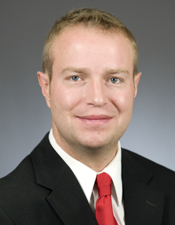Licensing bills drive debate, opportunities this session
Is the risk of physical or financial harm enough for the government to impose a licensure requirement on an entire occupation? Does licensing safeguard the public or create economic barriers?
Questions over occupational licensure’s role in the modern era were front and center at the Legislature this year.
A slate of six House bills this session propose imposing or expanding a licensure requirement for several professions with health care components, including genetic counselors; orthotics, prosthetics and pedorthotics personnel; eyelash extension technicians; music therapists; clinical lactation specialists; and body art technicians. The bills propose requirements ranging from minimum education and training to implementing disciplinary oversight.
Nationally, the growth of occupational licensure requirements has generated debate. The White House released a policy piece praising consumer protections, but expressing concerns it creates barriers.
Rep. Nick Zerwas (R-Elk River), who chairs the House Subcommittee on Licensing, recognizes the broader criticism and prefers free-market solutions. But he said this session’s bills deal with health care components, which puts them into a different category due to the risk of severe physical and financial harm posed by bad actors.
“If you’re going to be having a relationship where you are touching my body or you are doing therapeutic type procedures, we at least need to do the bare minimum,” Zerwas said. “If there is a bad actor, I can’t take away their education or their degree. If you have a bad actor in an unregulated health care field, there’s no way to flag them because no system exists.”
The genetic counselor bill and the orthotics, prosthetics, and pedorthics professional bill were included in the health and human services provisions of HF3467, a supplemental omnibus bill passed by the House.
The massage therapy bill and the clinical lactation bill are included in the Senate’s supplemental budget bill.
Regulations gained, regulations lost
Occupational licensure critics paint the issue with an overly broad brush, failing to recognize occupations that benefit or end up losing regulatory barriers, Zerwas said.
Rep. Mary Franson (R-Alexandria) sponsors HF2389 to establish licensure requirements for eyelash extension technicians. The bill is actually meant to protect these small businesses from other burdensome government regulations, she said.
Minnesota’s Board of Cosmetologist Examiners is considering updating its rules, which could include requiring technicians to obtain an aesthetician license. Currently, the state doesn’t regulate the industry.
An aesthetician license requires 600 hours of training and can cost between $4,000 and $12,000 depending on the school used, Franson said, adding that the training doesn’t even directly deal with eyelash extension, making it useless to those to specialize in just that area.
Her bill would replace this requirement with its own licensure standards: 14 hours of training.
Franson said a constituent in her district who has run her eyelash extension business for a decade fears the cost of obtaining the aesthetician training would close her doors permanently.
“Basically, this session will determine whether we are going to stand behind women and allowing to them to work or are we going to allow big government to close these businesses down,” Franson said.
The clinical lactation bill, sponsored by Rep. Roz Peterson (R-Lakeville), would also benefit its occupation by providing the licensing required under federal rules to be able to access Medical Assistance funds.
Zerwas said his massage therapy bill would give professionals the option to get one state license, instead of having to obtain a patchwork of licenses from each city they work in.
Future bills, differing views
Zerwas said the growing number of specialized professions, particularly in health care, will likely mean more licensure bills in the future.
“I think there is a trend towards accountability,” Zerwas said.
Morris Kleiner, a public affairs professor and AFL-CIO chair at the Humphrey School of Public Affairs who has studied the topic for decades, said licensure requirements have grown from 5 percent of U.S. jobs in the 1950s to 25 percent today.
Kleiner said licensure impact varies, but he is skeptical licensure has been proven to directly reduce the amount of bad actors in an occupation.
Historically, he said, licensure grows wages and improves employment opportunities for individuals who can obtain the license, but it limits employment for those who cannot while raising consumer costs.
Governments should consider alternatives for occupation oversight, such as certification or allowing consumer lawsuits against bad actors, instead of only “relying on the heavy step of licensing,” he said.
Related Articles
Search Session Daily
Advanced Search OptionsPriority Dailies
Legislative leaders set 2026 committee deadlines
By Lisa Kaczke Legislative leaders on Tuesday officially set the timeline for getting bills through the committee process during the upcoming 2026 session.
Here are the three deadlines for...
Legislative leaders on Tuesday officially set the timeline for getting bills through the committee process during the upcoming 2026 session.
Here are the three deadlines for...
Latest budget forecast projects nearly $2.5 billion surplus, but red ink down the road
By Mike Cook Three weeks before Christmas, state budget officials provided some merriment to Minnesotans. However, Grinch-like transformations lurk.
Released Thursday, the November ...
Three weeks before Christmas, state budget officials provided some merriment to Minnesotans. However, Grinch-like transformations lurk.
Released Thursday, the November ...
